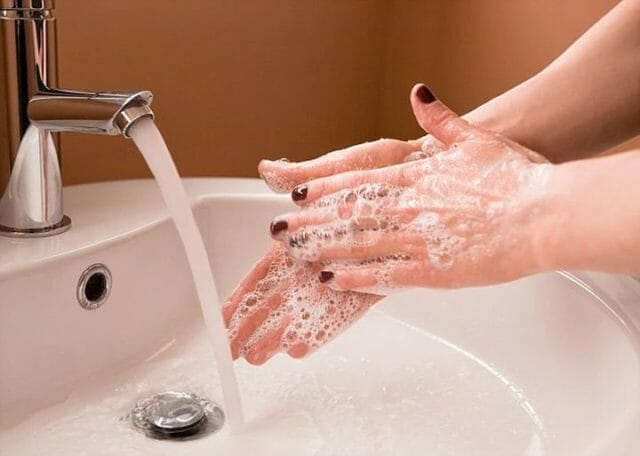
1. Germs are everywhere but you can’t see them
Germs, such as bacteria and viruses, are microscopic and not readily visible to the naked eye. Just because you can’t see them, doesn’t mean that they aren’t there. In fact, some bacteria live on your skin and some even live inside you. Germs commonly reside on everyday objects such as cell phones, shopping carts, and your toothbrush. They can be transferred from contaminated objects to your hands when you touch them. Some of the most common ways that germs get transferred to your hands is through handling raw meat, by using the toilet or changing a diaper, by coughing or sneezing, and after contact with pets.
2. Germs make you sick
Pathogenic bacteria, viruses, fungi and other germs cause disease in humans. These germs gain access to the body as they are transferred from person to person or from contact with contaminated surfaces. Once inside the body, the germs avoid the body’s immune system and are capable of producing toxins that make you sick. The most common causes of food-borne diseases and food poisoning are bacteria, viruses and parasites. Reactions to these germs can range from mild gastric discomfort and diarrhea to death.
3. Washing your hands prevents the spread of germs
According to the CDC, washing your hands is the most effective method of preventing the spread of disease. Properly washing your hands removes the dirt and germs that can be spread to others. Having clean hands is important because people often use their hands to touch their eyes, nose, and mouth. Contact with these areas gives germs, like the flu virus, access to the inside of the body where they can cause illness. You should always wash your hands before eating, after using the toilet, and after touching anything that may be soiled or have a high probability of being contaminated with germs. Washing your hands also helps to prevent the spread of skin and eye infections. It is very important to wash your hands, especially after handling raw meat or using the toilet. This simple act can help prevent the spread of bacteria such as:
- MRSA – a type of superbug, that can cause serious infections and are difficult to treat due to their resistance to antibiotics.
- Clostridium difficile – antibiotic-resistant bacteria that can cause serious diarrhea and stomach pain.
- E. coli – pathogenic strains of these bacteria cause intestinal disease, urinary tract infections, and meningitis.
- Salmonella – cause the illness salmonellosis, which results in nausea, vomiting, abdominal pain and diarrhea.
4. It’s less expensive than a hospital stay
Washing and drying your hands is a simple preventative measure that can be taken to help stave off illness. The healthier you are, the less likely you will have to go for expensive medical treatment at a hospital or emergency care clinic. Using a bar of soap to wash your hands is an inexpensive means of preserving your health and the health of those around you.
5. Washing your hands can keep you healthy
A major benefit of making sure your hands are clean is that it helps keep you healthy. It also helps to keep the environment around you clean, which prevents germs from spreading to others. According to the CDC, properly washing and drying your hands reduces your risk of getting sick with diarrhea by one-third. It also reduces your risk of getting a respiratory illness by up to twenty percent.
#Bacteria #HandWashing #RestroomHygiene

